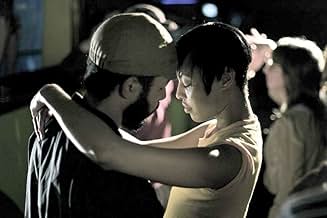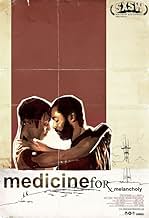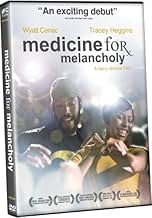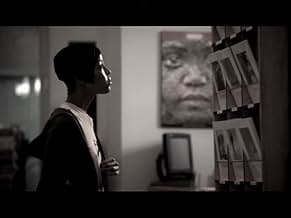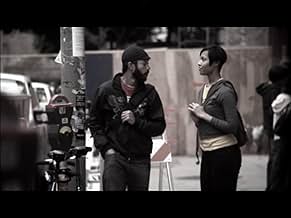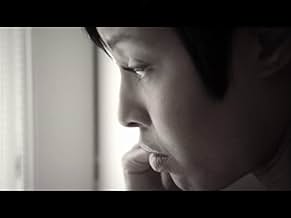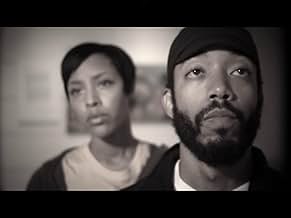NOTE IMDb
6,6/10
2,7 k
MA NOTE
Ajouter une intrigue dans votre langueTwenty-four hours in the tentative relationship of two young San Franciscans also dealing with the conundrum of being a minority in a rapidly gentrifying city.Twenty-four hours in the tentative relationship of two young San Franciscans also dealing with the conundrum of being a minority in a rapidly gentrifying city.Twenty-four hours in the tentative relationship of two young San Franciscans also dealing with the conundrum of being a minority in a rapidly gentrifying city.
- Récompenses
- 2 victoires et 10 nominations au total
Melissa Bisagni
- Sierra Orneilias
- (as Melisa Bisagni)
Chida Emeka
- Hydration Hustler 1
- (as Chidi Emeka)
Ondine Kilker
- Ondine Kilcher - Housing Rights Meeting Attendee
- (as Ondine Kilcher)
Histoire
Le saviez-vous
- AnecdotesMade on a budget of $13,000.
- Crédits fousEach song in the soundtrack appears in the credits with a still frame from the part of the movie where it was used.
Commentaire à la une
Medicine for Melancholy finds Barry Jenkins in his first feature as writer and director grasping for nothing. I can believe he was working from a script, though the feel and approach is closer to the style by the Duplass brothers and Andrew Bujalski and Joe Swanberg and those loose-as-whatever cats ("Mumblecore" to the critical laymans). What develops here is too little, and as a basic character portrait it falters because the two leads have zero chemistry.
More than that, Wyatt Cenac is both miscast and misdirected; I can believe that he can be funny (at least in a deadpan approach and playing off of someone who can match him) since he was on the Daily Show and other comedy ventures I'd liked, but as the lead in what is ALL about behavior and character and is deep down a drama, he brings less than nothing in this tiny sliver of a slice of life about a guy who tries to connect with a woman he had a one-night stand with (and that she cheated on her boyfriend, who happens to be white, though we never see him, God forbid Jenkins allow some added conflict or emotions to rise)
The two leads need to have enough charisma or chemistry or ANYTHING to keep us engaged, but they're given little by Jenkins (Cenac picks up a a guitar at one point, that's about it, the rest of the time he is either indifferent to Jo, played by Tracey Higgins), and they don't spark at all off of one another. Compared to them, Anakin and Padme are Michael Douglass and Glenn Close in the first act of Fatal Attraction. And it's not that they need to show full on sexual chemistry or anything like that (there is a sex scene but it's shot in all close- ups and done in a tasteful way, which is fine), but something needs to be there, whether it's dialog that can carry them to a place where we understand what draws them together or mutual interests and so on.
We don't get to know much about these two people, aside from the fact that Micah is obsessed with how black people are portrayed in society and are seen in that way (in the moment of the film where things finally come to some climax as she calls him out on it this is a primary issue), and that Jo likes, uh, art, and thinks Bowie and Queen's Under Pressure is better than Ice, Ice, Baby because it's Bowie and Queen (Micah thinks the beat is used better by Vanilla Ice, nevermind that a white guy is using a beat for a lame rap song and the cultural appropriation baggage there). Even in the brief dip into a pop culture talk, the moment where we might see this man and woman not unlike we might be as couples or trying to get to know people, it's awkward and stilted.
So what Jenkins gives his audience is a lot of these characters walking around, talking here and there, having a moment of sex, and mostly her telling him to do things (take a shower, get something to eat, go dance), and then the realization that (gasp) they have nothing in common. There's no insight, no enjoyment being with this couple, regardless of if the futilism Micah's doing is meant to be interesting in and of itself (this is post a break-up I think, it's unclear though, thanks MySpace reference).
When a filmmaker announces him or herself as a major force in modern cinema with one film it's kind of a big deal, and not unlike Damien Chazelle did with Whiplash and then his follow-up La La Land, it's staggering to consider the quantum leap he had from Guy and Madeline on a Park Bench, and the same can be said here for Jenkins from 'Melancholy' to Moonlight. At least Chazelle had the musical sense already down even if the narrative was sloppy; here, it's like a character exercise that was stretched for far too long, and Jenkins and DP James Laxton (who also shot in brilliant strokes Moonlight) give this a look that should be black and white but seems to be more washed-out, like all of the color has been washed and left to dry on a clothes hanger in the backyard. Though Laxton gets some interesting shots, it's unpleasant to look at, and it makes it a tough sit due to the fact that the characters are unpleasant, or at least the reason they stick together is unpleasant.
One full star goes to the use of Tom Waits' 'Lie to Me.'
More than that, Wyatt Cenac is both miscast and misdirected; I can believe that he can be funny (at least in a deadpan approach and playing off of someone who can match him) since he was on the Daily Show and other comedy ventures I'd liked, but as the lead in what is ALL about behavior and character and is deep down a drama, he brings less than nothing in this tiny sliver of a slice of life about a guy who tries to connect with a woman he had a one-night stand with (and that she cheated on her boyfriend, who happens to be white, though we never see him, God forbid Jenkins allow some added conflict or emotions to rise)
The two leads need to have enough charisma or chemistry or ANYTHING to keep us engaged, but they're given little by Jenkins (Cenac picks up a a guitar at one point, that's about it, the rest of the time he is either indifferent to Jo, played by Tracey Higgins), and they don't spark at all off of one another. Compared to them, Anakin and Padme are Michael Douglass and Glenn Close in the first act of Fatal Attraction. And it's not that they need to show full on sexual chemistry or anything like that (there is a sex scene but it's shot in all close- ups and done in a tasteful way, which is fine), but something needs to be there, whether it's dialog that can carry them to a place where we understand what draws them together or mutual interests and so on.
We don't get to know much about these two people, aside from the fact that Micah is obsessed with how black people are portrayed in society and are seen in that way (in the moment of the film where things finally come to some climax as she calls him out on it this is a primary issue), and that Jo likes, uh, art, and thinks Bowie and Queen's Under Pressure is better than Ice, Ice, Baby because it's Bowie and Queen (Micah thinks the beat is used better by Vanilla Ice, nevermind that a white guy is using a beat for a lame rap song and the cultural appropriation baggage there). Even in the brief dip into a pop culture talk, the moment where we might see this man and woman not unlike we might be as couples or trying to get to know people, it's awkward and stilted.
So what Jenkins gives his audience is a lot of these characters walking around, talking here and there, having a moment of sex, and mostly her telling him to do things (take a shower, get something to eat, go dance), and then the realization that (gasp) they have nothing in common. There's no insight, no enjoyment being with this couple, regardless of if the futilism Micah's doing is meant to be interesting in and of itself (this is post a break-up I think, it's unclear though, thanks MySpace reference).
When a filmmaker announces him or herself as a major force in modern cinema with one film it's kind of a big deal, and not unlike Damien Chazelle did with Whiplash and then his follow-up La La Land, it's staggering to consider the quantum leap he had from Guy and Madeline on a Park Bench, and the same can be said here for Jenkins from 'Melancholy' to Moonlight. At least Chazelle had the musical sense already down even if the narrative was sloppy; here, it's like a character exercise that was stretched for far too long, and Jenkins and DP James Laxton (who also shot in brilliant strokes Moonlight) give this a look that should be black and white but seems to be more washed-out, like all of the color has been washed and left to dry on a clothes hanger in the backyard. Though Laxton gets some interesting shots, it's unpleasant to look at, and it makes it a tough sit due to the fact that the characters are unpleasant, or at least the reason they stick together is unpleasant.
One full star goes to the use of Tom Waits' 'Lie to Me.'
- Quinoa1984
- 6 févr. 2017
- Permalien
Meilleurs choix
Connectez-vous pour évaluer et suivre la liste de favoris afin de recevoir des recommandations personnalisées
- How long is Medicine for Melancholy?Alimenté par Alexa
Détails
Box-office
- Budget
- 13 000 $US (estimé)
- Montant brut aux États-Unis et au Canada
- 111 551 $US
- Week-end de sortie aux États-Unis et au Canada
- 12 625 $US
- 1 févr. 2009
- Montant brut mondial
- 111 551 $US
- Durée1 heure 28 minutes
- Couleur
- Rapport de forme
- 1.78 : 1
Contribuer à cette page
Suggérer une modification ou ajouter du contenu manquant

Lacune principale
By what name was Medicine for Melancholy (2008) officially released in India in English?
Répondre




